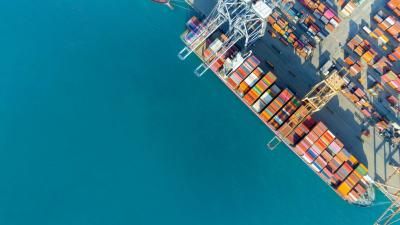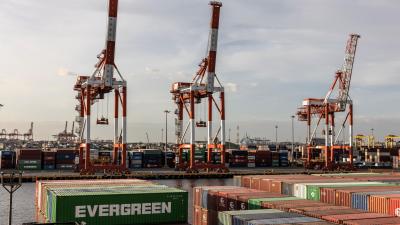
Funding a climate-resilient ocean economy
Suzanne Johnson reflects on her role as Senior Ocean Advisor to the United Nations Global Compact, supporting the work of the Ocean Stewardship Coalition.
This page is approximately a 3 minute read
This page was published on

Suzanne Johnson, Senior Ocean Advisor to the United Nations Global Compact
Multilateralism is delivering progress. From new net-zero shipping frameworks to accelerating ratifications of the High Seas Treaty, cooperation in the ocean space is working — despite wider geopolitical tensions. Ocean finance has shifted from a side conversation to a priority, with capital markets, institutions, and businesses increasingly engaged.
One data point to show the increase in interest from market capital in the ocean is research showing that more than $610 billion of recent sustainable bonds include funding categories for the ocean.This type of number shows that ocean investment is not longer niche.
But this surge in interest needs direction. The Blue Economy Finance Forum called for greater coherence — aligning taxonomies, measurement frameworks, and tools like the Ocean Investment Protocol. Without consistency, investment flows remain fragmented. With it, we unlock the potential for systemic transformation.
Small Island Developing States (SIDS) continue to offer critical leadership, particularly in addressing the unique challenges of transitioning to an ocean-positive economy. New Ocean Centres across Ghana, Kenya, India, Bangladesh, Brazil, Indonesia, and the Philippines are helping make ocean finance locally rooted and globally scalable. Ensuring these efforts reflect SIDS' perspectives will be essential as initiatives evolve.
UNOC3 revealed incredible commitment within the ocean community, but also a gap: many businesses, investors, and insurers still don’t see the ocean as a strategic priority. And yet, ocean health underpins sectors from food systems to shipping, ports, energy, and trade. It’s time to widen the lens.
New tools can bridge this gap. Standardised frameworks and investment protocols help map risks and identify opportunities. With harmonisation, capital can move with clarity and confidence. Without it, the urgency for action risks being lost in translation.
We need action. A signal from governments and regulators and bond issuers and first movers to take their brave step. It’s not a luxury to invest in the ocean, it’s a necessity.
Ports and maritime infrastructure present a compelling opportunity to bring more private sector players to the table. With new IMO regulations and growing support for nature- and people-positive development, these investments are now both sustainable and profitable.
Not long ago, blue finance was a fringe ambition. Today, it is a recognised enabler of sustainable development — and a growing community of experts across sectors are making it real. Embedding ocean investment into mainstream finance is no longer a dream. It’s happening.
Now the challenge is scale — and storytelling. The ocean agenda must speak to more than just the converted. Because the solutions are here. The leadership is growing. And the tide has already turned.
